- Home
- Andrew Wareham
Dark Days Of Summer (Innocents At War Series, Book 4) Page 13
Dark Days Of Summer (Innocents At War Series, Book 4) Read online
Page 13
Monkey was horrified – the girl was utterly convincing, not educated but perfectly able to observe and know what was happening. She telephoned her father that evening.
“Who owns the shell-filling factory at Wilton, sir?”
“It’s not one of ours, my dear. I am not certain. Why?”
She explained. Lord Moncur was shocked, but not entirely surprised.
“They are working at full stretch just now, to provide all of the shells needed for the Big Push. They may be cutting corners. I will ask about. There are inspectors who go around all of the places, checking them, but this last few weeks the word is that they have been chasing the makers of duds.”
“Duds? Shells that don’t explode, Papa?”
“Shells that cannot explode, my dear, for being filled with sand!”
“But, can that not be seen when they are used?”
“No. There is a bag at the top, under the wooden plug where the fuse is to be screwed in before it is fired. The gunners take the plug out and put the fuse they want in and fire the shell – they cannot inspect its insides, and they cannot discover afterwards whether it had a faulty fuse or was simply lacking in High Explosive! As many as ten per cent of shells, they say, fail to go off.”
“Is it not possible to examine them, Papa?”
“Too many, and too little time. All that can be done is to make surprise inspections of the factories. One has been caught so far. The owners have blamed the managers, and the managers have claimed that the foremen were defrauding them, and the police and the inspectorate are doing their best to discover the truth, but there is too much money floating, too many bribes, for them to get to the bottom of the affair. There will be a prosecution, but whether it catches the right men, God alone knows!”
“What can I do in Wilton, Papa?”
“Wait while I find out who is running the place, and I shall raise Cain with them.”
The plant in Wilton was filling nine point two inch howitzer shells, almost the biggest the Army used. The shell itself stood nearly three feet tall and took a filling of about forty pounds of High Explosive, poured in hot from buckets that had to be lifted above the shoulder height of the girls working on the benches; minor spillages were inevitable. The heavy – two hundred and fifty pounds - empty shell cases were pushed into the factory on their railway wagons and were hauled by the few men onto the benches and then rolled back onto the same wagon, banging and clattering into each other. The men were all demobbed soldiers, sent back to civilian life as unfit to serve after being wounded or contracting tuberculosis in the Trenches; not all were strong enough for the job. Just occasionally a shell rolled out of control and fell onto the railway tracks in a shower of sparks as the lumps of steel clashed together; five or six of the men would quickly pick it up again, before a manager could see what had happened.
Days later, Monkey, and the whole of the village was shaken out of bed in the middle of the night by the huge explosion.
Mrs Rudge roused from her bed, Annie at her side, running from their rooms.
“It’s they bloody Zeppelins, ma’am, sure as ever is!”
“It’s the shell-filling plant, ma’am. It’s gone. I knew it would! I said it would…”
“Calm yourself, Annie! Put the kettle on! Quickly now, girl! A pot of tea will do us all good.”
Monkey restored calm in the household, took the baby in her arms, fretful for having been snatched out of her cot and brought downstairs by the nursery-maid.
“I shall get dressed, Mrs Rudge. What is the time?”
It was four-thirty, early but not impossibly so. Monkey went to the telephone, woke her father. The government must be informed, and as quickly as possible.
“The shell-filling factory has blown up, Papa. A huge explosion. Forty girls and perhaps ten men on the night shift, sir. I have not been there to see, but I expect most of them must be dead. It is a mile from us, Papa, and it was still the greatest noise I have ever heard.”
“Don’t go near the factory, Grace. It is possible that shells remain unexploded, with fires close to them. I shall inform the necessary authorities here. Say nothing to the newspapers, Grace!”
Lord Moncur sat down by the telephone for half an hour; Secretary of State for War, Home Secretary and his own office as first priorities. Mr Lloyd George’s private secretary next – the most influential man in the government could not be left in ignorance. There was no need, he felt, to inform the Prime Minister; Mr Asquith was too weak a character to respond to a crisis – he would flap and moralise and debate while the need was for immediate action.
His own Permanent Secretary drove up to the house, came into the breakfast parlour, gratefully accepting food and drink.
“The owners are already known to us, my lord. It is a subsidiary of the Eley small-arms ammunition company, in itself a public company but all shares owned by Eley. The managing director of the company is on his way to our offices now, my lord. Eley have been informed and will have their senior men present here and are sending an engineer to Wilton. The Inspectorate have been alerted and have their men en route to Wilton now. The Wiltshire Constabulary have been instructed to place the management of the shell-filling factory under arrest. The investigation will be taken over by the Military Police, my lord, as soon as possible.”
“Good. I will wish to speak to the managing directors myself. We informed them of our concerns about safety five weeks ago.”
“The need for shells for the Somme offensive is very great, my lord…”
“I shall have them imprisoned, at minimum, if they are shown to have taken no notice of the warning sent to them.”
The newspapers made no mention of the explosion, forbidden under the provisions of the Defence of the Realm Act. No editor or owner chose to stand against the government on the issue – it was only a matter of a few dozen accidentally killed, no more than a fleabite compared to events on the Front, and none of them people of significance or interest.
A full enquiry was instituted by the Inspectorate and rapidly disclosed that the factory had chosen not to replace cleaning workers who had left in previous months, thus saving on their wages. The factory manager was new in the position and claimed he had orders from the board to reduce spending on ‘unnecessary hands’; his predecessor made a stir when he stated that he had resigned for being unable to run the factory safely, but he was unable to attend the formal enquiry for being sent to a factory in Canada at far higher salary. The enquiry reported that it was probable that the explosion resulted from unsafe working practices, but they would be incapable of sustaining a prosecution for lack of reliable witnesses. It was agreed that the day-shift factory hands themselves were too ill-educated to give testimony in court – they would not be able to clearly state what was or was not legally unsafe.
Lord Moncur visited at Wilton a few days after the inquests were held, explaining all to his daughter.
“The night-shift manager could certainly have been prosecuted, but he died in the blast, of course. The Board of Directors may have been at fault in trying to cut costs, but it would be difficult to demonstrate criminality, and in any case, they would argue that they relied upon the reports given them by their managers. The directors themselves are all busy men, devoting less than one day a month to the shell-filling factory and most of their time spent in other important functions. The overall effect is to say that the needs of wartime production justified them in cutting corners. The deaths are unfortunate and much to be regretted and there will be substantial sums paid in compensation.”
Monkey was unimpressed.
“Paid by the insurance companies, Papa, and hardly at a generous rate. Widows of the six men to receive one pound a week and an additional two shillings for each dependent child. Parents of the unmarried girls to be given fifty pounds, ex-gratia. None of the women were married, of course, and so no consideration has been given to the possibility of children, or, more importantly, to the crippled fathers or brothers that s
ome were working to keep. Four to my knowledge were contributing to their sisters who had families and war-wounded husbands; not a penny for them.”
“They are not a legal responsibility and the insurance companies cannot be expected to continue the charitable works of the deceased.”
“Contemptible, sir! One might have expected that the Board of Directors, some of whom are very rich men, might have made a generous gesture. They have offered nothing.”
“That admittedly is very poor behaviour on their part, Grace. I know of two who are in immediate expectation of Honours; a word to Mr Lloyd George and they may be persuaded to change their minds on the issue of additional payments. After all, they have forked out for the titles that are to come their way – they can find a very few thousands more!”
“All done by the back door, Papa. Should we not have a law that demands proper compensation be paid to those who die in ‘accidents’ at work?”
“Very costly, my dear! It might not be desirable that industry should be so burdened.”
“Better that families should be, sir?”
Lord Moncur was left without an answer, but comforted himself that the shock would become less, that she would soon turn her mind to other, less distressing, issues.
It was not good enough, Monkey believed. She did not know what might be done, and had no idea of where to find information on possible action. Perhaps she might make contact with the Labour Party – there might be a source of help there, for she was not prepared to do nothing for the victims of a wholly man-made disaster.
The first problem, of course, was to discover some means of contacting the Party – for none of her acquaintance were in any way likely to have sympathy for it. Possibly a letter to an MP care of the House of Commons would do the job; she could find out the name of the leader of the Party there – it was vaguely Scottish, she thought.
She attended the weekly committee meeting of the ladies of Wilton, suggesting to them that they might modify the direction of their charitable works in order to give support to the wounded men of the village.
“After all, ladies, we see every day that there are crippled men who are wholly unable ever to return to gainful work. There are three I have seen who have lost a leg, and two who have but one arm – there is little they can do for an employer. I believe that Lord Pembroke has taken a pair of wounded men on as gardeners, although they cannot do much by way of digging, for example. We could ensure that their children ate every day, at the very least.”
The ladies were not sure that was a proper use of the funds they had raised – they were to supply comforts for the men still at the Western Front. Poor relief was the field of the proper Board and they should not interfere, they felt.
“In any case, my dear Mrs Stark, it is our function to assist the war by aiding our brave boys in their fight. Money spent on these unfortunates will do nothing to defeat the evil Hun!”
Monkey became increasingly irritated, the more so when the ladies enquired whether Major Stark might not be soon in expectation of receiving a second blessing. It was, they implied, much more her function to be producing children than to be concerning herself with the fate of the poor.
Quack’s brother arrived and settled into the sick bay. He was a large and powerfully built man, had played rugby football, as a prop, and seemed a very hearty sort of gentleman. The squadron was overawed by such a vigorous man.
“More than Quack in every way, it seems, Tommy!”
“Quacker, in fact, Jim!”
“Good one, Tommy!”
Having named him, the doctor became less of an alien to the squadron. They had their first major crash just days after he arrived, and that settled him in as an old hand.
Christopher, almost the last of the original pilots of the squadron, was the victim of some unusually well-aimed ground fire while flying over the lines, and returned to the field with canvas flapping and his engine misfiring. His observer was doubled up in his cockpit, unmoving and bloody. He brought the damaged Strutter in as well as could be expected but was caught out at two hundred feet by a fluke in the wind, was thrown offline and forced to bank harder than his damaged wing would take and came in very hard. The observer was thrown two yards clear as the plane hit but Christopher remained trapped in his cockpit; howling for a few seconds before the petrol tank blew and silenced him.
Quacker led the running party that scooped up the observer and brought him out before the flames could catch him.
Tommy landed with the remainder of the squadron an hour later, skirting the blackened wreckage as they came down.
“Lost them, Jim?”
“Christopher’s still in there, Tommy. He must have had three parts of a tank of petrol; the ashes are still hot. Flight-Sergeant Hogsflesh, the Hampshireman, is at the Base Hospital, his legs damaged but probably not too badly, Quacker says. He was bounced just clear and Quacker ran in and picked him up before the tank blew – did very well!”
“Good stuff! Gong-worthy?”
“Deserves a medal, for sure, Tommy. Problem is, he’s a civilian working with us rather than a serviceman, so he might not be eligible for anything we can offer. I will speak to Baring about it, if you want – it there’s a way of doing it, he will be able to find out.”
“Buy him a beer or six after dinner tonight, anyway. Have you put in for a plane and a pilot yet, Jim?”
“Got to do that through Wing now, Tommy. Spoke to Pot half an hour ago.”
“I am sure that Colonel Kettle will do all he can to fill in the gap in our ranks. Still nothing in the air, Jim – two weeks of patrolling and exactly zero success.”
“No, you’re wrong there, Tommy. One hundred per cent success! How many photographs of our build-up have gone back to Jerry?”
“None – which is what Trenchard wants, of course. You are right, Jim – but it becomes very tedious, nonetheless.”
Dark Days Of Summer
Chapter Six
Tommy stood in front of the squadron on a wet morning, using the opportunity to give them a briefing.
“Squadron patrols are working in one sense, gentlemen – they are scaring the opposition out of the sky. We have no reports of a successful reconnaissance in our sector. Boffin will tell us all he knows; that will only take a couple of minutes.”
There was a quiet chuckle – Boffin did not fit in.
The Intelligence Officer - heavily bespectacled and stooped like a caricature of a schoolmaster or comic-book scientist – did his long-suffering best. He had only been with the squadron for a month, but that felt an age to him. He was a serious-minded young man, one who was convinced that he could make a positive contribution to the squadron, if only the pilots would let him. He could not comprehend their light-hearted approach to the deadly serious business of war, and, a teetotaller by moral and religious conviction, he could not sympathise with their drunkenness. He frequently remonstrated with them, tried to persuade them to a wiser way of life, all for their own good. He was much aware – thought he might be only man on the squadron who was – that it was Sunday; he debated opening his contribution with a brief prayer, regretted that he lacked the courage and must shirk that duty. He could not understand why the RFC, alone in the British forces, did not hold Church Parades. He took a deep breath, commenced his well thought-out analysis.
“Intelligence reports bear out all that Major Stark has said. There have been no successful photographic patrols in the squadron’s sector. The reason probably is that the enemy in this part of the Western Front is flying the single-seater Fokker DI and DIII mostly, and these are poor machines, very limited in their performance and unable to cover the two-seaters, which are a mixture of old types, all of which are familiar to you, together with the more modern DFW. There will be newer aircraft within a very few weeks, and they will be of better performance and able to defend themselves, but may well be introduced over Verdun first. There are no Taubes still flying, but a number of Fokker and Pfalz monoplanes remain active. It
is understood that the German Air Force is reorganising itself and will soon be flying its pursuit aircraft in something called ‘Hunter Squadrons’, loosely translated; these will be of, we understand, at least twelve aeroplanes. As you know, the build-up for the big offensive on the Somme is well underway and it is vital that we maintain our current air superiority for as long as possible. It is hoped that the squadron will continue its policy of aggression.”
“Thank you, Boffin. It seems that we have a week or two, a month at most, in which to slap Jerry down. By the end of August, they will be reorganised and training the new squadrons. If they still have the bulk of their experienced pilots in the air, they will rapidly do us a lot of no good. We should therefore do harm to them now.”
The pilots applauded Tommy’s words – they thought that doing harm to the enemy was their prime function in life and an excellent idea in itself.
“What I intend, therefore, is to make it appear that we have dumped the idea of squadron patrols. Instead of three Flights, close together, we shall be separated virtually to the limit of visibility. One Flight at about five thousand feet, out of machine-gun range but well exposed to Archie. The exploding shells should bring a few Fokkers to peer from a respectable distance and seeing only four of our buses, they may be expected to attack. At that juncture – and there’s a big word for you – I got it from a speech made by Trenchard last week – the other two Flights will appear from great height, one from the direction of our lines, the other from the north east, where they will have been sneaking between clouds in order to cut off the opportunity for retreat. With a little of good fortune, we shall bash the Fokkers.”

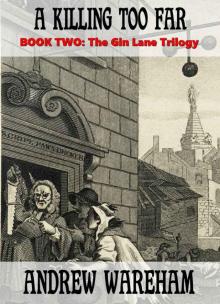 A Killing Too Far
A Killing Too Far Killing's Reward
Killing's Reward A New Place
A New Place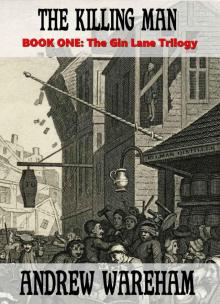 The Killing Man
The Killing Man Bold and Blooded
Bold and Blooded The Breaking Storm (Innocent No More Series, Book 2)
The Breaking Storm (Innocent No More Series, Book 2) Nobody’s Child
Nobody’s Child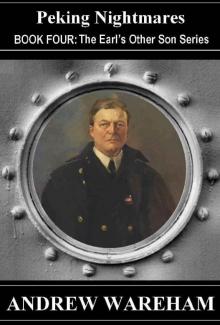 04 Peking Nightmares (The Earl’s Other Son Series, #4)
04 Peking Nightmares (The Earl’s Other Son Series, #4) Red Man
Red Man Foreign Mud
Foreign Mud The Gathering Clouds (Innocent No More Series, Book 1)
The Gathering Clouds (Innocent No More Series, Book 1) 06 A Soldier’s Farewell (Man of Conflict #6)
06 A Soldier’s Farewell (Man of Conflict #6) Chinese Whispers
Chinese Whispers 02 Shanghai Dreams (The Earl’s Other Son #2)
02 Shanghai Dreams (The Earl’s Other Son #2)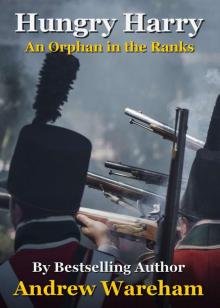 Hungry Harry: An Orphan in the Ranks
Hungry Harry: An Orphan in the Ranks A Wretched Victory (Innocents At War Series, Book 6)
A Wretched Victory (Innocents At War Series, Book 6) Illusions Of Change (A Poor Man at the Gate Series Book 6)
Illusions Of Change (A Poor Man at the Gate Series Book 6) The Wages Of Virtue (A Poor Man at the Gate Series, Book 8)
The Wages Of Virtue (A Poor Man at the Gate Series, Book 8)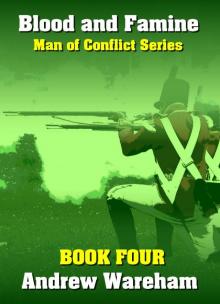 Blood and Famine (Man of Conflict Series, Book 4)
Blood and Famine (Man of Conflict Series, Book 4) The Friendly Sea (The Duty and Destiny Series, Book 1)
The Friendly Sea (The Duty and Destiny Series, Book 1)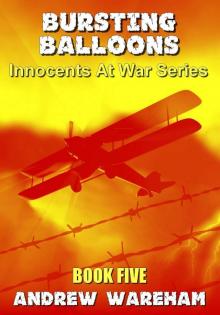 Bursting Balloons (Innocents At War Series, Book 5)
Bursting Balloons (Innocents At War Series, Book 5)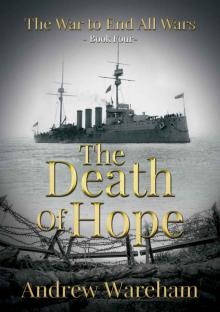 The Death of Hope
The Death of Hope Deadly Shores (The Duty and Destiny Series, Book 11)
Deadly Shores (The Duty and Destiny Series, Book 11) The Vice Of Virtue (A Poor Man At The Gate Series Book 10)
The Vice Of Virtue (A Poor Man At The Gate Series Book 10) Virtue’s Reward (A Poor Man at the Gate Series, Book 11)
Virtue’s Reward (A Poor Man at the Gate Series, Book 11)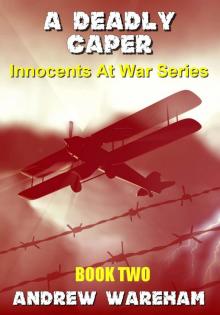 A Deadly Caper (Innocents At War Series, Book 2)
A Deadly Caper (Innocents At War Series, Book 2)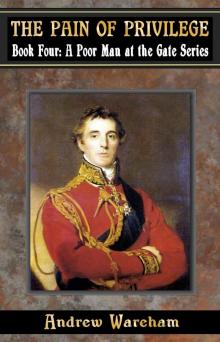 The Pain Of Privilege (A Poor Man at the Gate Series Book 4)
The Pain Of Privilege (A Poor Man at the Gate Series Book 4) Far Foreign (The Duty and Destiny Series, Book 9)
Far Foreign (The Duty and Destiny Series, Book 9)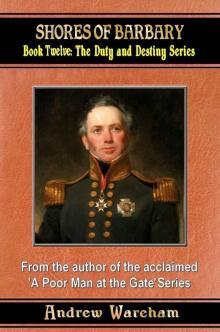 Shores of Barbary (The Duty and Destiny Series, Book 12)
Shores of Barbary (The Duty and Destiny Series, Book 12)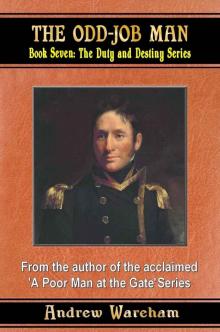 The Odd-Job Man (The Duty and Destiny Series, Book 7)
The Odd-Job Man (The Duty and Destiny Series, Book 7)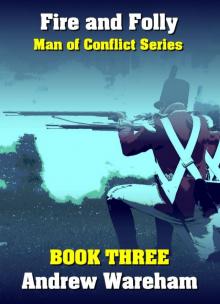 Fire and Folly (Man of Conflict Series Book 3)
Fire and Folly (Man of Conflict Series Book 3)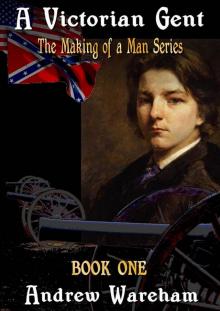 A Victorian Gent (The Making of a Man Series, Book 1)
A Victorian Gent (The Making of a Man Series, Book 1)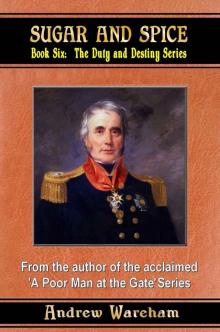 Sugar and Spice (The Duty and Destiny Series, Book 6)
Sugar and Spice (The Duty and Destiny Series, Book 6)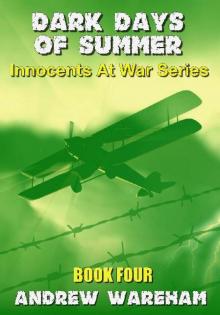 Dark Days Of Summer (Innocents At War Series, Book 4)
Dark Days Of Summer (Innocents At War Series, Book 4)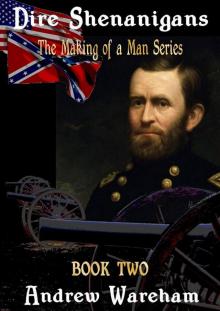 Dire Shenanigans (The Making of a Man Series, Book 2)
Dire Shenanigans (The Making of a Man Series, Book 2) The Fuzzy-Wuzzy Man (The Duty and Destiny Series, Book 3)
The Fuzzy-Wuzzy Man (The Duty and Destiny Series, Book 3) Privilege Preserved (A Poor Man at the Gate Series Book 5)
Privilege Preserved (A Poor Man at the Gate Series Book 5)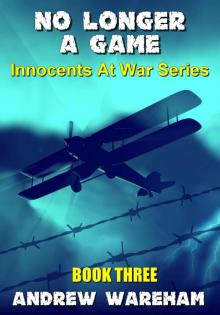 No Longer A Game (Innocents At War Series, Book 3)
No Longer A Game (Innocents At War Series, Book 3)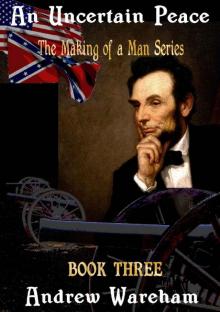 An Uncertain Peace (The Making of a Man Series, Book 3)
An Uncertain Peace (The Making of a Man Series, Book 3)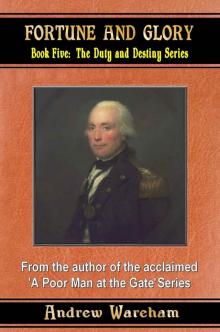 Fortune And Glory (The Duty and Destiny Series, Book 5)
Fortune And Glory (The Duty and Destiny Series, Book 5) The Old Order (A Poor Man at the Gate Series Book 7)
The Old Order (A Poor Man at the Gate Series Book 7) A Place Called Home (Cannibal Country Trilogy, Book 2)
A Place Called Home (Cannibal Country Trilogy, Book 2) Nouveau Riche (A Poor Man at the Gate Series, Book 2)
Nouveau Riche (A Poor Man at the Gate Series, Book 2) The Privateersman (A Poor Man at the Gate Series Book 1)
The Privateersman (A Poor Man at the Gate Series Book 1)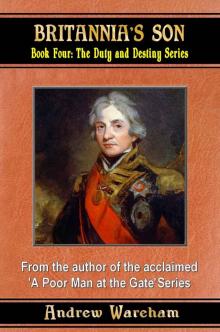 Britannia’s Son (The Duty and Destiny Series, Book 4)
Britannia’s Son (The Duty and Destiny Series, Book 4) Long Way Place (Cannibal Country Trilogy, Book 1)
Long Way Place (Cannibal Country Trilogy, Book 1) Spanish Tricks (Man of Conflict Series, Book 5)
Spanish Tricks (Man of Conflict Series, Book 5) A Parade Of Virtue (A Poor Man At The Gate Series Book 9)
A Parade Of Virtue (A Poor Man At The Gate Series Book 9) A Busy Season (The Duty and Destiny Series, Book 8)
A Busy Season (The Duty and Destiny Series, Book 8) Billy Bacon and the Soldier Slaves (Colonial Warrior Series, Book 1)
Billy Bacon and the Soldier Slaves (Colonial Warrior Series, Book 1) Raging Rajahs (Man of Conflict Series, Book 2)
Raging Rajahs (Man of Conflict Series, Book 2) Victorian Dawn (A Poor Man at the Gate Series, Book 12)
Victorian Dawn (A Poor Man at the Gate Series, Book 12) Born To Privilege (A Poor Man at the Gate Series Book 3)
Born To Privilege (A Poor Man at the Gate Series Book 3)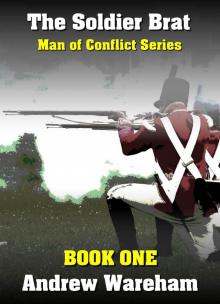 The Soldier Brat (Man of Conflict Series, Book 1)
The Soldier Brat (Man of Conflict Series, Book 1)